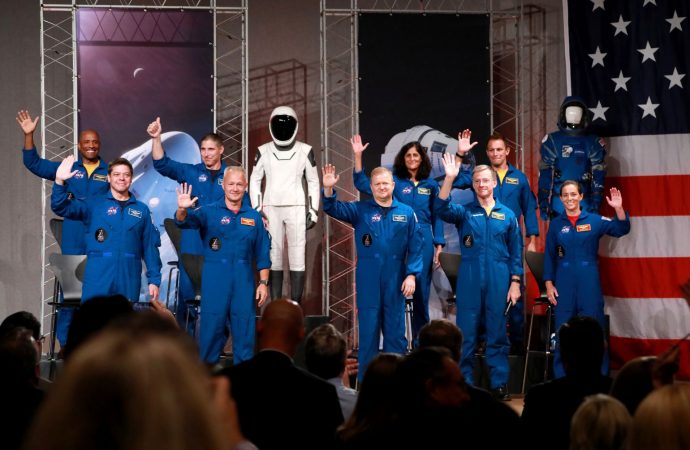Two of the top companies on Morgan Stanley’s list are SpaceX and Blue Origin.
Many on Wall Street are busy publishing 2019 market estimates but Morgan Stanley’s added an outlook on the space industry.
“We expect industry / technological milestones and capital formation will up the ante starting in 2019,” Morgan Stanley’s Adam Jonas wrote in a note to investors on Wednesday.
Jonas, along with other Morgan Stanley analysts, repeated the firm’s previous stance that the majority of investors “view the space economy as having little, if any, relevance to their portfolio,” he said. But Morgan Stanley has been telling clients to pay attention to space companies and will be hosting a “Space Summit” next month to prepare investors.
Morgan Stanley said in the report that 2019 could “be the year for space,” listing “key milestones and catalysts that we expect to develop.”
First on Morgan Stanley’s list: Elon Musk’s SpaceX, which is only a few weeks away from the first of two test flights for NASA’s Commercial Crew program. With the first crewed flight of SpaceX’s Crew Dragon capsule scheduled for June, the company is set to become the first to launch U.S. astronauts from U.S. soil since 2011.
Boeing is also closing in on the first flight tests of its Starliner capsule for Commercial Crew, planned for later next year.
Morgan Stanley noted that SpaceX is building on its 2018 successes, including the first launch of the Falcon Heavy rocket, the test of its broadband satellite prototypes and key designations and awards from both NASA and the U.S. Air Force. Musk’s space venture has a $28 billion valuation – making it the third most valuable private company in the world.
Then there is Jeff Bezos’ Blue Origin, which landed a massive engine contract in September. Blue Origin is in final preparations to send humans to the edge of space on its reusable New Shepard rocket, with the first crewed flight expected in the coming months.
Morgan Stanley has highlighted Blue Origin before, saying Bezos “has both the will and, increasingly, the financial muscle to put to work” his vision for the space company. Bezos is personally putting billions of dollars behind Blue Origin’s development.
The White House push to create a Space Force as a sixth military branch is also continuing, Morgan Stanley noted. The firm said the Space Force will be submitted as a legislative proposal “with the President’s Budget for FY 2020 in February 2019 to support Congressional consideration in the FY 2020 National Defense.”
Morgan Stanley also pointed to a flurry of young space companies, namely Vector and Virgin Orbit. Both of those companies launch small rockets, aiming to grab share of the lucrative and growing “cubesat” side of the industry. This year has been dubbed “the year of small launch” by investment firm Space Angels, especially after Rocket Lab’s first orbital launch of its Electron vehicle in January.
Overall, Morgan Stanley said its estimates for the space economy to be worth more than $1 trillion in 2040 — as well as for SpaceX to double, or even quintuple, its valuation — “are significantly tied to the developments related to satellite broadband.”
“If we start to see less emphasis on broadband and / or challenges associated with ‘go to market’ strategies to provide bandwidth to the underserved / unserved population, then we are getting closer to” estimates on the low end of the range, Morgan Stanley said.
The firm further explained why a lack of development in broadband satellites would shift expectations for the future:
“If there is less emphasis on bandwidth, this places increased emphasis on satellite launch and earth observation in the near term, with the upside having to come from innovation that we are not able to model. Think of the innovation that has come from the internet that we would not have been able to model in the 1990s. It does not mean that it will not come, it just means that more creative minds will have to come up with solutions that come from the ability to access space at a lower cost,” Morgan Stanley said.
Source: CNBC

































Leave a Comment
You must be logged in to post a comment.